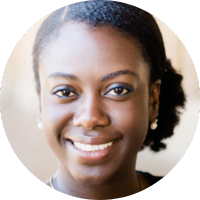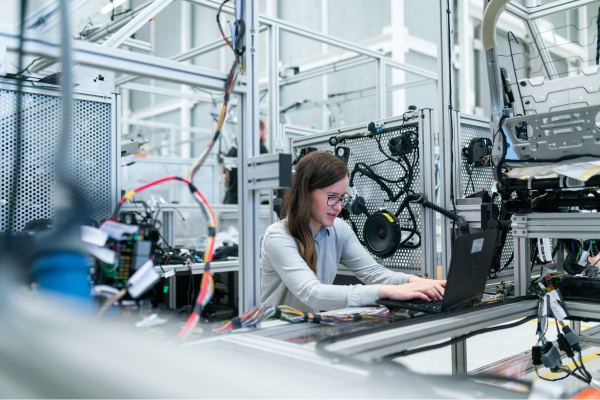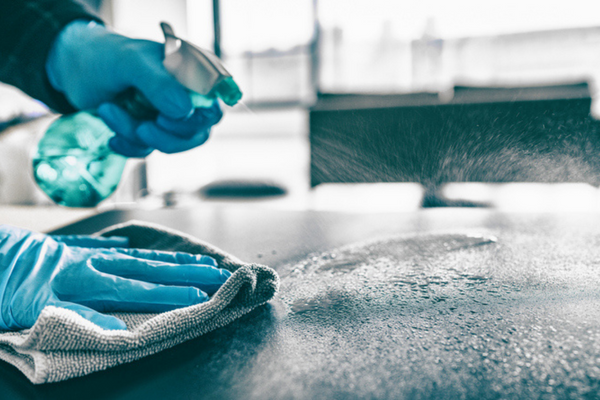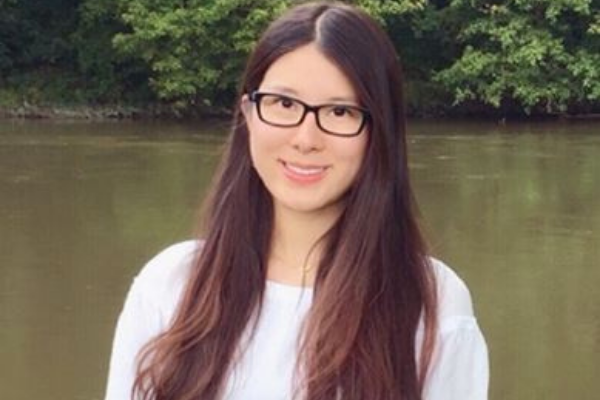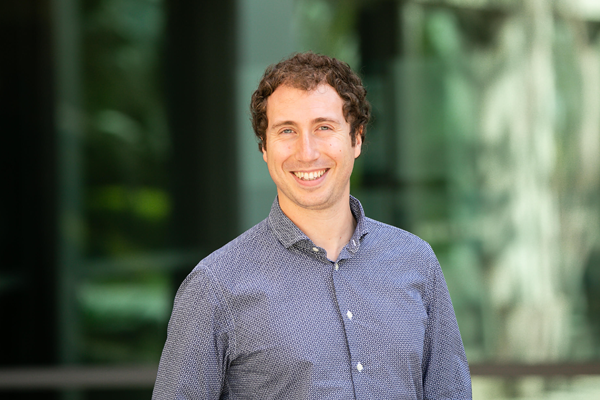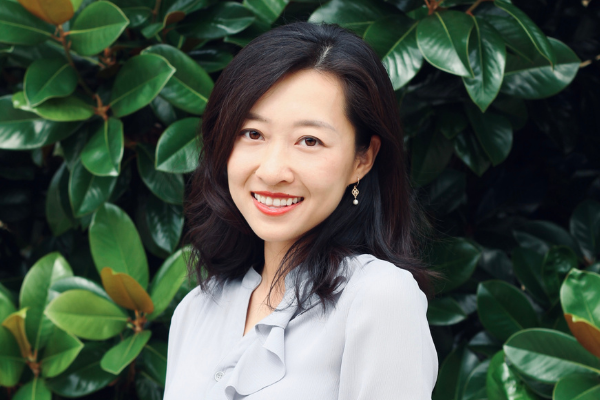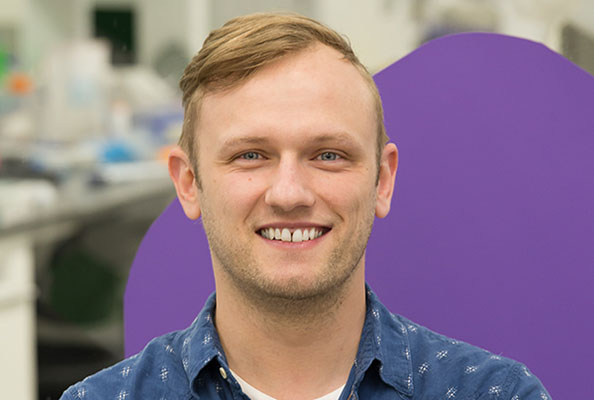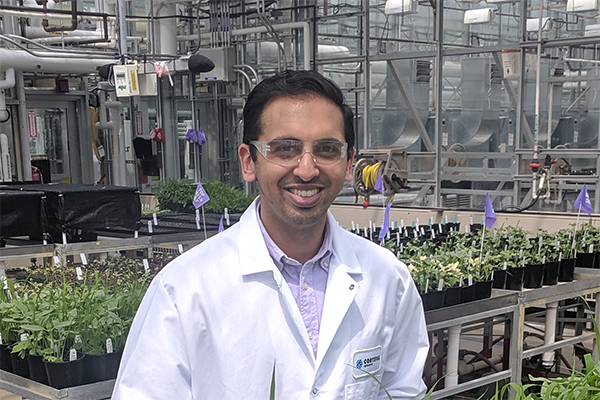
My grandmother, who worked as a midwife, was my first connection to the ‘science world’. As a young child, I enjoyed going through her medical books and would bombard her with questions. I was fascinated by the engineering of the human body and felt strongly that I would be a nurse or doctor one day. A few years later after reading the scholastic biography of George Washington Carver, I decided that I wanted to be a scientist. For me, learning about new career possibilities allowed me to dream bigger about what I could become. I’m not sure that I had ever settled on any one career path in childhood, but one thing was consistent: I loved to learn and was always curious.
My interest in chemistry was not born out of curiosity but necessity. As a science major at my high school in Guyana, I needed to pass the class to qualify for the Caribbean examinations. People are often surprised to learn that I struggled with chemistry. In fact, for the first half of high school, my performance was mediocre at best. That changed the next year when I enrolled in after-school classes with Ms. Jordan, the woman who would eventually teach me an appreciation and love for chemistry. By the time I graduated, I’d gone from having a failing grade to being very near the top of my class.
This newfound passion led me to declare a chemistry major as an undergraduate at Stony Brook University. It was my time there that would take me on a journey that I could never have imagined but ultimately brought me exactly where I needed to be. While at Stony Brook, a friend and mentor, Cindy Thomas-Charles, introduced me to the world of research. When I learned that I could apply my classroom skills to do ‘real research’, I immediately jumped at the opportunity, driven by the possibility of discovering new things. Research taught me that science was much more predictable in theory than practice. It fueled my curiosity and from that point, I spent every summer working in various labs in and outside of the US.
All these experiences would eventually lead me to pursue a PhD in Chemical Engineering at Stanford. This was the beginning of my journey to becoming the scientist I once dreamed of way back when I read that first scholastic biography.
What has been the role of mentorship in your career?
I was very fortunate as an undergraduate to have the support of mentors and programs like LS-AMP, MARC, and ACS Scholars, to name a few. Every important career decision that I’ve made from college to this point has not been without some input or advice from a mentor. Being the first in my family to navigate this path, having the guidance of others who had done the things that I was trying to do was key for my success.
Forming a mentoring relationship starts by asking questions of someone about things which you are genuinely curious. When you take that first step, you will find that the people around you are often willing to help you be successful. If this is not the case, then you’re in the wrong place.
Where did you grow up?
I grew up with my mother, grandmother and brother in Guyana, a small country on the North-east coast of South America. My country was not wealthy and naturally, we lacked certain resources, especially in the education system, but one thing Guyanese people have aplenty is grit. Although my background, like many others, may be painted with hardship, it did not define me nor limit my dreams but mainly because I had a strong support system. My family always supported my endeavors and celebrated my achievements.
What advice do you have for current students?
I have three pieces of advice for current students:
- Your main job as a student is to learn. Don’t be embarrassed to not know. If you knew everything then you wouldn’t be a student. However, this means that if you don’t understand something, you should ask lots of questions until you do.
- Failure is not the ‘be all, end all’. It’s more likely a commentary on the environment or your circumstances than it is about who you are as person. What’s most important is how you react, and the lessons learned. So, don’t back down from your next challenge. To grow, you must go outside of your comfort zone.
- Your academics are only one part of your life. Don’t make it your whole life. For graduate students, look for opportunities to pursue your passions outside of the lab, take classes or attend seminars outside of your field and learn early about career opportunities available to you.
What are you doing in your current position? What do you enjoy the most about it?
I am in the first year of the CoRE (Collaborate, Rotate, Elevate) rotation program at Lam Research. My company makes equipment used by semiconductor manufacturers (chip makers). The CoRE program is great because it gives you the opportunity to do impactful work while exploring different areas of the company and to build up an unparalleled network. What I enjoy the most is learning about how the work in the various business units are related and being able to connect the dots.
You have a BS in chemistry and a PhD in Engineering can you compare and contrast the work and experience in both fields?
Personally speaking, my experiences, outside of course work, as a chemist and chemical engineer were not that different. My undergraduate and graduate research were both in the field of surface and materials science. My background in surface chemistry benefitted me in my PhD research. My first rotation at Lam was process engineering focused. More emphasis was placed on adapting or modifying developed processes and improving throughput rather than fundamental chemical research like I did in graduate school.
Tell us about your experience with the Black Engineering Graduate Students Association (BEGSA) at Stanford.
In my first year at Stanford, I was a part of the team of students who helped to shape BEGSA into the organization it is today. It was only a year old at that point. We developed a structure for governance and planned regular social and professional development events for our members.
BEGSA existed to create a sense of community among black students in engineering. Stanford, like many other higher education institutions, unfortunately, does not yet reflect the diversity of America in its graduate student population so a big mission of the organization has been to help in the recruitment and retention of black students at the graduate level. We did this by starting the Stanford Exposure to Research and Graduate Education (SERGE), a program to get underrepresented students thinking about graduate school in engineering and envisioning themselves at institutions like Stanford. It is still an ongoing program but unfortunately, currently lacks a committed financial source so students in BEGSA raise funds yearly to give these students the opportunity to participate in the program.
Tell us, in your opinion, what makes a good boss.
I believe that the term ‘good boss’ is subjective since different employees may have differing needs and expectations. Generally, I try to find managers who are:
- supportive and invested in my growth;
- willing to provide clear expectations and work to set goals;
- and understanding and respect work-life boundaries.
This article has been edited for length and clarity. The opinions expressed in this article are the author's own and do not necessarily reflect the view of their employer or the American Chemical Society.
Copyright 2021 American Chemical Society (All Rights Reserved)

